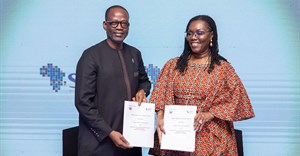Top stories






More news











Marketing & Media
#AfricaMonth: How Sarah Collins, founder of Wonderbag, is changing lives globally
Evan-Lee Courie 13 May 2025




The programme comes at a pivotal time when global economic norms are being redefined by technological disruption, demographic shifts, social change, geopolitical uncertainty, and environmental crises. Traditional models of leadership are no longer sufficient. Instead, organisations must prepare for and thrive within New Economies – economic spaces shaped not by geography, but by shifts in the macro-environment.
Historically, the term “economy” referred to flows of value within defined geographic boundaries – continents, nations, cities. However, New Economies represent economic shifts spurred by broader global forces. These include, but are not limited to, the Green Economy, Digital Economy, Care Economy, Gig Economy, and Circular Economy.
New Economies are characterised by:
While disruptive, these shifts offer significant opportunities for businesses and societies to innovate and lead. However, navigating the MPhil running from July 2025 to November 2026, directly responds to these imperatives. This executive-level programme blends strategic foresight, economic transformation, leadership, and sustainability into a robust curriculum aimed at:
Delivered in a blended format, with both online learning and immersive in-person sessions at the Gibs campus, the programme is designed to accommodate the schedules of high-level professionals while offering deep, practical engagement.
For more information https://www.gibs.co.za/programmes/mphil-specialising-in-leading-new-economies.